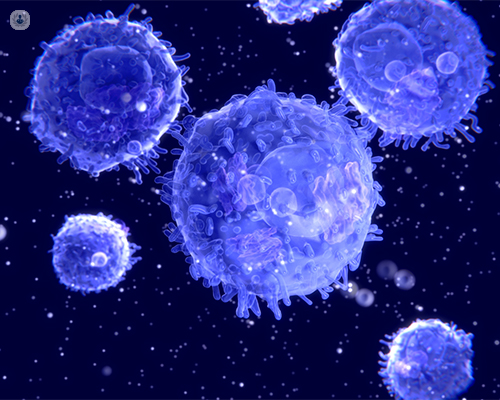A comprehensive guide to immunotherapy for breast cancer: part 2
Autore:In the second article of a two-part series, leading consultant medical oncologist Dr Mark Tuthill discusses which breast cancer responds best to immunotherapy, and how the treatment differs from chemotherapy.

What types of breast cancer respond best to immunotherapy?
Early breast cancers respond best to immunotherapy, such as triple-negative breast cancer in the early breast cancer setting. Regarding advanced breast cancers, PDL1 positive cancers respond best to immunotherapy. Although it has been proven in clinical trials that some patients that had PDL1-negative breast cancer did respond well, it's very clear the benefit is largely restricted to those with higher PDL1-expressing breast cancers, and this means that you can't have immunotherapy if you have a PDL1 negative advanced breast cancer
This is difficult for some patients who would like to receive immunotherapy, however it's important to remember there is another form of treatment named saccharismabgovatikam, which doesn’t involve immunotherapy treatment for triple-negative breast cancer.
While its effectiveness in the third-line setting may not match that of pembrolizumab or tocilizumab, it could prove comparable if the treatment goes well.
How does immunotherapy differ from traditional breast cancer treatments like chemotherapy or radiation?
Immunotherapy differs from chemotherapy or radiation in that it is essentially using your own body's immune cells to attack the cancer cells. When we give chemotherapy, we are essentially giving a toxin that the cancer cells recognise. It damages the cancer cells in such a way that they then undergo a process of programmed cell death in which they essentially kill themselves in response to exposure to chemotherapy.
With immunotherapy treatments, there's usually no direct effect of the immunotherapy treatment on the breast cancer cells. For example, if you take an immune checkpoint in the pembrolizumab in earlier advanced breast cancer, this therapy hangs the balance between cancer and the body. In other words, giving the immunotherapy treatment stimulates the breast cancer to the immune system to attack the breast cancer cells.
The main difference is that the side effects of immunotherapy are usually indirect effects. In other words, these treatments often involve stimulating the immune system to combat breast cancer cells without directly targeting the cancer cells themselves.
To book a consultation with Dr Tuthill, simply visit his Top Doctors profile today


